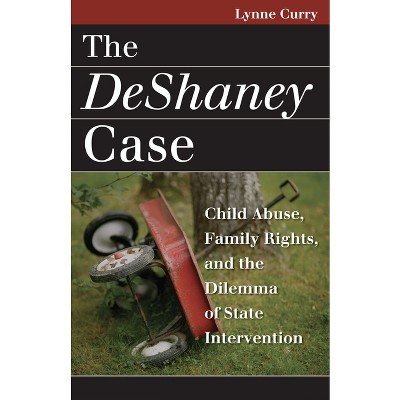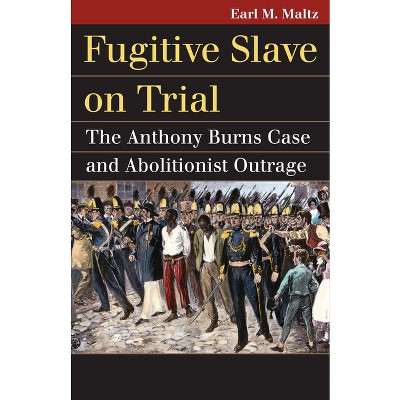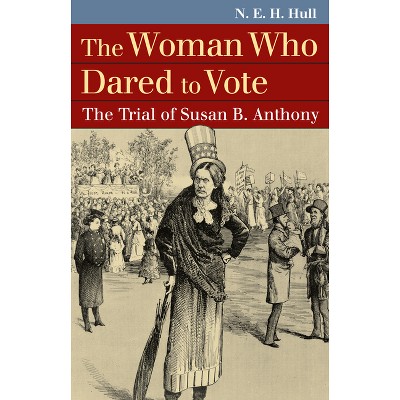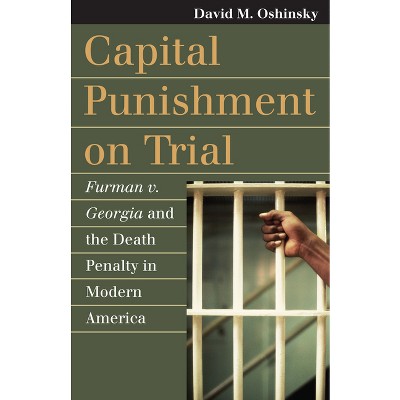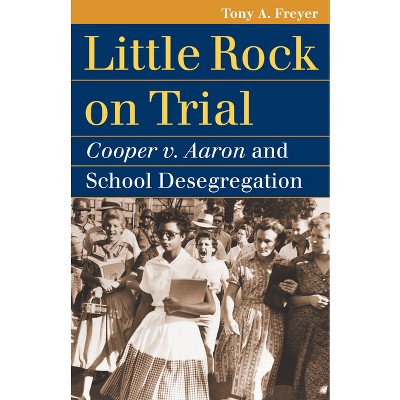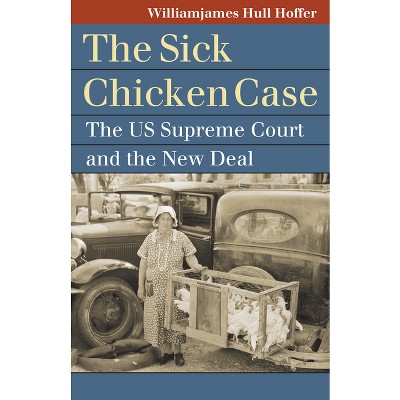Sponsored

Yoder Case - (Landmark Law Cases & American Society) by Shawn Frances Peters (Paperback)
In Stock
Sponsored
About this item
Highlights
- Compulsory education has always been in the best interest of the state, as it fosters good citizenship and self-sufficiency.
- Author(s): Shawn Frances Peters
- 208 Pages
- Freedom + Security / Law Enforcement, Legal History
- Series Name: Landmark Law Cases & American Society
Description
Book Synopsis
Compulsory education has always been in the best interest of the state, as it fosters good citizenship and self-sufficiency. But what if a segment of society considers state education detrimental to its own values? In the late 1960s, one Wisconsin Amish community held that view and removed its children from public schools. When the state claimed truancy and took Jonas Yoder and two other parents to court, a legal battle of landmark proportions followed. Prize-winning historian Shawn Peters now offers a complete and compelling account of the Yoder case and of the tortured decision of simple Amish folk to break tradition and "go to law." He examines the breadth of First Amendment protections, the validity of compulsory school attendance, and the fundamental rights of parents and children. He also takes readers deep into the world of the Old Order Amish to show how their beliefs were often at variance with the very measures being undertaken to protect them. While most accounts of Wisconsin v. Yoder have focused on its origins and implications, Peters lays out all the facts of the case to reveal their intrinsic importance. He draws on trial transcripts and in-depth interviews with participants to fully explore the backgrounds, motivations, and strategies of the people who shaped the case-particularly the National Committee for Amish Religious Freedom and its attorney William Ball. He then describes in riveting prose how the trial unfolded, explains the impact of First Amendment jurisprudence on ordinary citizens involved, and shows how a relatively obscure dispute became a conflict of national importance. When the U.S. Supreme Court in 1972 ruled in favor of the Amish, its decision was hailed by many as a victory for religious freedom but was also criticized for conferring special protection on one faith. Yoder was subsequently cited in fundamentalist Christian efforts to excuse children from public schooling, but faith-based exemption to law was ultimately defeated in other tests. Peters traces the progress of such cases into the 1990s to show how Yoder in some ways marked the beginning of the end of an era for religious liberty jurisprudence. In exploring the meaning and legacy of Yoder, Peters reveals not only the human element of a landmark case but also its continuing relevance for our times.Review Quotes
"A comprehensive, thoughtful, and eminently accessible examination of the events and personalities surrounding this landmark case. . . . Peters is carefully attuned to the legal complexities surrounding Yoder, but his strength lies in his ability to interweave historical, legal, religious, and biographical information into a compelling narrative. . . . In recounting the 'full story' of this compelling conflict, Peters successfully demonstrates how seemingly abstract legal opinions are created by, and affect, countless lives in fascinating, often poignant ways."--Journal of Religion
"Peters [has] the capacity to describe often isolated and embattled religious groups with sympathy as well as insight. . . . Peters's ability to tell the story in simple and sympathetic terms is an achievement in itself, making this book a valuable addition to the literature."--Interdisciplinary History
"This book is important reading for all, academic, and public policy people who have interests in or concerns about cherishing and protecting ethnic minorities or about government upholding a high standard in protecting religious liberty."--Journal of American Ethnic History
"This is an extremely reader-friendly book. Peters tells the story of . . . one of the landmark cases in the Supreme Court's interpretation of the U.S Constitution's First Amendment religion clauses. He vividly portrays all the characters, along with their foibles and hidden agendas. . . . The volume is highly recommended for the lay reader who wants to learn important facts about the workings of the U.S. legal system in an entertaining and accessible way. Highly recommended."--Choice
"Shawn Francis Peters, with his award-winning Judging Jehovah's Witnesses, established himself as a church-state scholar of note. This well-written book confirms that status."--Journal of Church and State
"A detailed, impartial analysis of events, and a fascinating account recommended for law school students and nonspecialist general readers with an interest in the separation of Church and State issues."--Bookwatch
"Wisconsin v. Yoder remains an important church-state case three decades later, and Peters does a tremendous job of outlining the issues in a well-written manner. He takes time to introduce the characters in the drama from the interest group lawyers to the Amish parents. He offers insightful analyses on the tension that these Amish men created by 'going to law' in a subculture that does not value litigation. . . . Those interested in this area of law would be advised to read this account of a case that was narrow in scope, but wide in historical implications."--For God and Country
"Sympathetic, yet rigorous, and grounded in a thorough grasp of Amish culture, this superb book shows how Amish religious convictions have reshaped religious liberty for all Americans."--Donald B. Kraybill, author of The Amish and the State
"A masterly study of a case at the very heart of what free exercise of religion means."--Melvin I. Urofsky, author of A March of Liberty: A Constitutional History of the United States
"Admirably blends a wonderful storytelling ability with a remarkable capacity to present complex legal aspects of the case in a way that's easy to understand."--Derek Davis, author of Original Intent: Chief Justice Rehnquist and the Course of American Church-State Relations
"An extremely illuminating study of a profound human drama."--Sanford Levinson, author of Constitutional Faith






